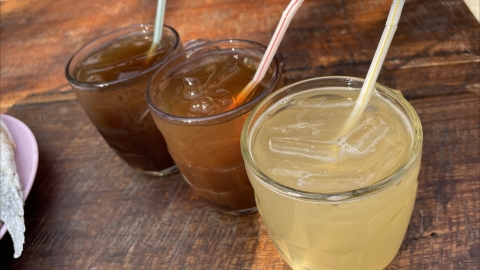Is the sourness of tamarind juice strong?
The sourness of tamarind juice is quite rich and distinct, yet it is not simply sharp or harsh; rather, it carries a natural fruity acidity with a subtle hint of sweetness lingering after the taste.

Tamarind juice is primarily made from tamarind fruit, processed through procedures such as cleaning, boiling, and filtering, which preserve the unique flavor of tamarind. Some products may also contain added sugar, honey, or other sweeteners to make the taste more acceptable to the general public. In terms of nutritional value, tamarind juice is rich in nutrients such as vitamin C, B-complex vitamins, calcium, phosphorus, and iron, among which vitamin C is particularly prominent and provides antioxidant properties. Dietary fiber in the juice helps promote intestinal motility.
The strong sourness of tamarind juice can stimulate the secretion of saliva and gastric juice, thus having an appetizing and digestive effect, making it suitable for consumption when experiencing loss of appetite. Its rich nutritional components can replenish energy and relieve fatigue, while dietary fiber contributes to intestinal health and improves digestive function. Whether used to aid digestion after a meal or to quench thirst in daily life, tamarind juice is a flavorful and nutritious beverage option.
The intensity of sourness in tamarind juice varies depending on the product and individual taste preferences. When purchasing, you can check the product's ingredient list or flavor description to select one that suits your taste.




